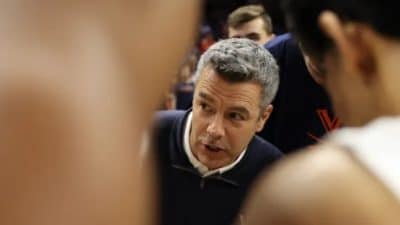Story by Jim Bishop
Four persons from Lebanon and Laos will reflect on the reality and tragic effects of cluster bombs on their families, communities and countries in a story tour coming to Eastern Mennonite University.
Phounsy Phasavaeng and Lasee Phetsavong of Laos and Raed Mokaled and Bassam Chamoun of South Lebanon will speak on “Daily Terro: Walking in War’s Aftermath” at 7 p.m. Oct. 24 in Martin Chapel of the seminary building at EMU.
A cluster-bomb photo exhibit will also be featured.
A cluster bomb is a small explosive submunition or bomblet that is delivered to its target in a large canister or shell. Cluster bombs are indiscriminate. They cannot distinguish between civilian and military targets. Their wide-area coverage and poor targeting mechanisms nearly guarantee that unintended victims will die or be injured, even when the weapons function as designed.
Cluster munitions continue to kill long after a war ends because these weapons often fail to explode on impact as designed.
Phounsy Phasavaeng of Sekong Province has lived her entire life among unexploded bombs that litter the Lao countryside. She was born in 1978, several years after the U.S. bombing of Laos had ended. As a young child, she lost a nephew to a cluster bomb.
Ms. Psasavaeng is currently employed as a project manager at CARE International and participates in demining operations in her home province.
Lasee Phetsavong was born in Houa Phan Province, an area heavily damaged by the U.S. air war. She works for the War Victims and People With Disabilities Project in Laos, which includes organizing immediate care for persons injured by unexploded ordnance and assisting with long-term education and employment needs of victims.
Raed Mokaled, an optician in the city of Nabatieh, Lebanon, has also worked with the Lebanese Red Cross since 1991. In 1999, Raed’s middle son, Ahmad, was killed on his fifth birthday from injuries sustained while playing in a park near his home. He had come across an unexplored cluster bomblet.
Bassam Chamoun of Ansar, South Lebanon, has served as Lebanon program coordinator for Mennonite Central Committee since 1985 and is a board member at a local school for disabled children.
In 2006, his family home received significant secondary damage from Israeli bombs directed into their neighborhood. Since then, he has worked closely with MCC Lebanon to support Lebanese non-governmental organizations in cluster bomb awareness campaigns as well as in providing support for victims of bomblets.
Phounsy Phasavaeng and Bassam Chamoun have attended the Summer Peacebuilding Institute at EMU.
Admission to the program, cosponsored by Mennonite Central Committee and EMU’s Peace Fellowship, is free.
Jim Bishop is a regular contributor to The Augusta Free Press.










